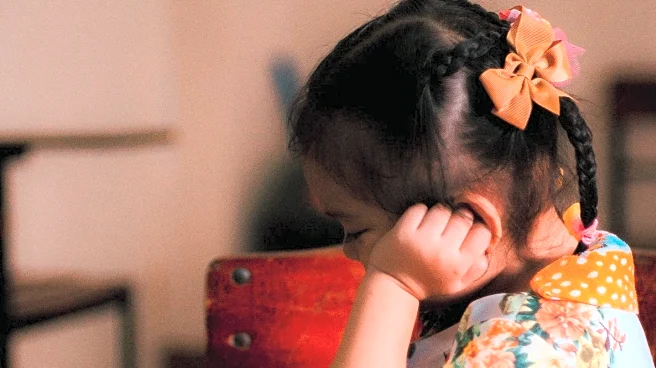What is the story about?
What's Happening?
As the new school year begins, many young children experience separation anxiety, a common issue when starting preschool or kindergarten. Experts suggest that this anxiety is a natural part of growing up, especially for children experiencing their first extended period away from parents. Strategies to ease this transition include reassurance from parents, allowing children to bring a 'bravery toy' to school, and gradually exposing them to separation. Psychologists emphasize the importance of validating children's feelings while maintaining firm boundaries to build resilience. Parents are encouraged to create brief goodbye rituals and involve children in preparations for school to make them feel more comfortable.
Why It's Important?
Separation anxiety can hinder a child's daily activities if not addressed, potentially requiring clinical intervention. By implementing strategies to ease this anxiety, parents can help children develop self-soothing skills and confidence in handling difficult situations. This approach not only benefits the children but also reassures parents, who may themselves be anxious about their child's transition. Addressing separation anxiety effectively can lead to a smoother adjustment to school, fostering a positive educational experience and social development for young children.
What's Next?
Parents and educators are advised to monitor children for prolonged symptoms of separation anxiety, which may require consultation with a pediatrician. Gradual exposure to separation and consistent routines can help children become more comfortable over time. As children adjust, they may become more eager to participate in school activities, enhancing their learning and social interactions. Continued support and understanding from parents and teachers are crucial in helping children overcome separation anxiety.
Beyond the Headlines
The issue of separation anxiety highlights broader themes of childhood development and parental involvement. It underscores the importance of fostering resilience and independence in children, which are essential skills for their future. The strategies discussed also reflect a growing awareness of mental health in educational settings, promoting a supportive environment for both children and parents.
















